SLUSDW3A April 2020 – November 2020 LMR50410
PRODUCTION DATA
- 1 Features
- 2 Applications
- 3 Description
- 4 Revision History
- 5 Device Comparison Table
- 6 Pin Configuration and Functions
- 7 Specifications
- 8 Detailed Description
- 9 Application and Implementation
- 10Power Supply Recommendations
- 11Layout
- 12Device and Documentation Support
- 13Mechanical, Packaging, and Orderable Information
Package Options
Mechanical Data (Package|Pins)
- DBV|6
Thermal pad, mechanical data (Package|Pins)
Orderable Information
7.9 Typical Characteristics
VIN = 12 V, fSW = 700 kHz ,TA = 25°C, unless otherwise specified.
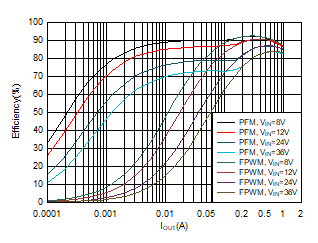
| fSW = 700 kHz | VOUT = 3.3 V |
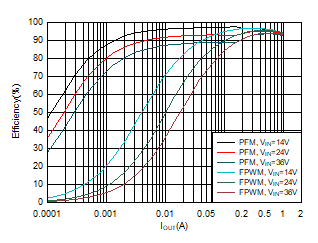
| fSW = 700 kHz | VOUT = 12 V |
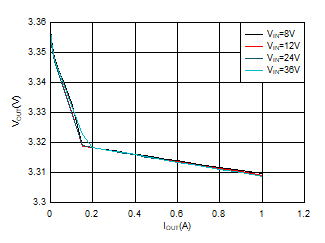
| fSW = 700 kHz | VOUT = 3.3 V | PFM version |
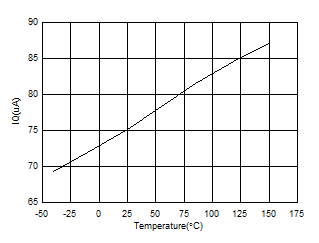
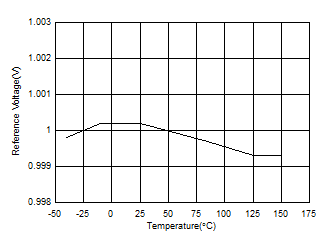 Figure 7-9 Reference Voltage versus Temperature
Figure 7-9 Reference Voltage versus Temperature
| fSW = 700 kHz | VOUT = 5 V |
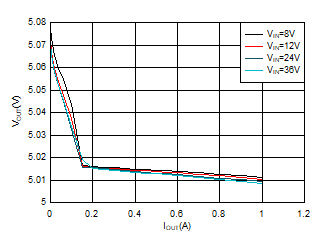
| fSW = 700 kHz | VOUT = 5 V | PFM version |
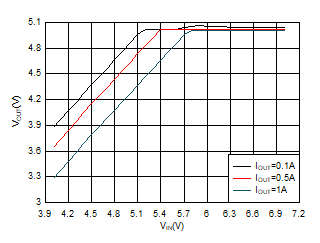
| fSW = 700 kHz | VOUT = 5 V | FPM version |
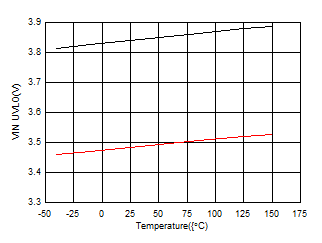
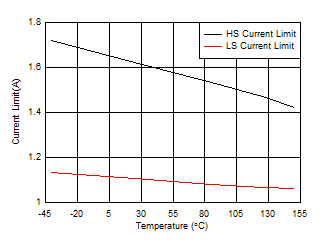 Figure 7-10 HS
and LS Current Limit versus Temperature
Figure 7-10 HS
and LS Current Limit versus Temperature